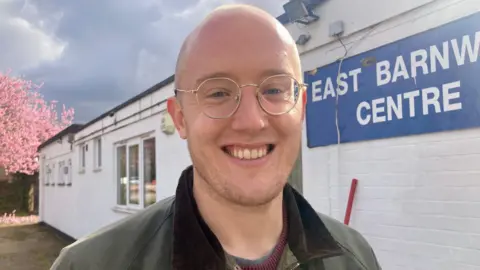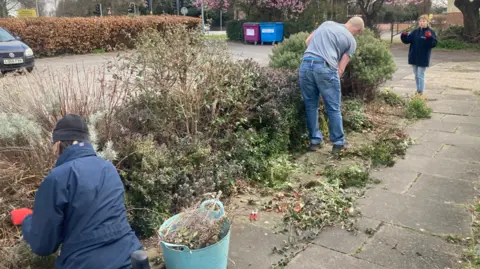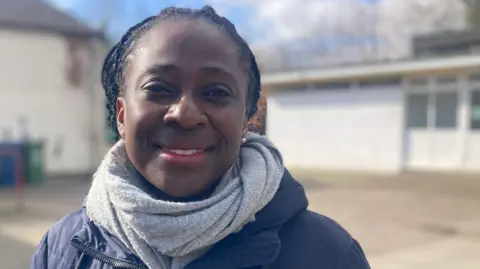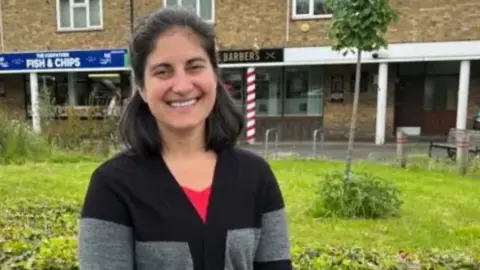A city divided by a gap in healthy life expectancy
 BBC
BBCCambridge is at the centre of new plans by the government that could see £78bn added to the UK economy, yet figures suggest people living in the north of the city have a healthy life expectancy that is 12 years shorter than those living in the south.
In King's Hedges, north Cambridge, the healthy life expectancy for a male is 61 years and for a female it is 62 years; in Newnham, which is about three miles (5km) away in the south of the city, life expectancy is 73 years for a males and 77 years for females.
Healthy life expectancy is described as being the number of years you can expect to be in "good" general health.
In January, Chancellor Rachel Reeves announced investment in new homes in the city centre, lab space and funding for East West Rail.
Yet with the gap in life expectancy widening in the area, is the money being poured into Cambridge benefiting everyone?

A 2017 Centre for Cities report described Cambridge as the UK's most unequal city, with some of the country's highest living costs.
Keir, 29, is part of Abbey People, a gardening club that meets at East Barnwell Centre in the Abbey ward in north-east Cambridge, which is one of the most deprived areas in the city.
The charity's volunteers provide support to the community through a food hub, gardening projects and by running social events.
Keir, who did not want to give his surname, says working with plants and meeting people has helped his mental health.
"I'm unemployed and I find being outside really helps me stay positive," he says.
The Oxford University graduate says he has been struggling to find a job.
He added that gardening has helped his mood as well as his physical health.
"Somebody said to me people in Abbey have a life expectancy 11 years shorter than the rest of Cambridge, which made my jaw drop.
"That's a huge, huge disparity.
"The money is there. You've got the colleges, the tech but there's a large chunk of people who don't see any of that money. Abbey ward is where you see that."

Sally Cartwright, the county's director of public health at Cambridgeshire County Council, agrees that a lack of access to cheap, nutritious food, expensive gym memberships and insufficient exercise and community facilities in the area have all contributed to the gap in life expectancy.
"You just need to not lose sight of these inequalities. It might not be a one-size-fits-all, whether someone is working, or the type of job they have or what sort of housing they live in [can contribute to life expectancy]," she says.
Differences in wealth affect people's health, she adds, as well as other triggers such as smoking, heavy drinking and poor diet.
"All of these various issues layer upon each other to have an impact on healthy life expectancy."
Lisa Connolly says the reality of life in Abbey has been witnessed by several generations of her family.
She is a single mother to a child with special needs and her family have lived in the area of Cambridge since the 1800s.
Despite the government's plans for Cambridge, Lisa says she has not benefitted from the investment in the city.
"We're living day-to-day. We're just above water, but if anything was to go wrong financially, we'd go down.
"When I tell my friends I'm from Cambridge, they can't quite believe it."
The sentiment is echoed by fellow gardener, Mercy Horsoo, who says the area has been deprived for "quite a long time".
"I think it's high time the incentives are evenly distributed," she adds.
 Jozef Hall/BBC
Jozef Hall/BBCNicky Shepard, the chief executive of Abbey People, says there are dozens of families "struggling to meet their basic needs" in the area.
"Being in poverty is hard on people's bodies. There's a distrust of authority here, so people delay in getting help," she says.
She says a lot of people she knows need help "just to get through the week".
"We all know alcohol is not great for you, but the impact of someone drinking when they are otherwise well is very different to someone who is in poverty.
"And in this part of Cambridge, it's getting worse," she adds.
Follow Cambridgeshire news on BBC Sounds, Facebook, Instagram and X.
